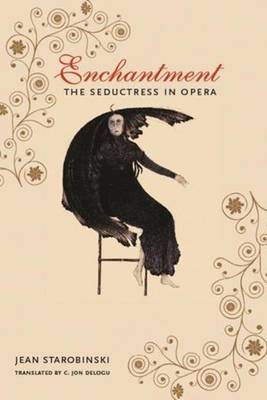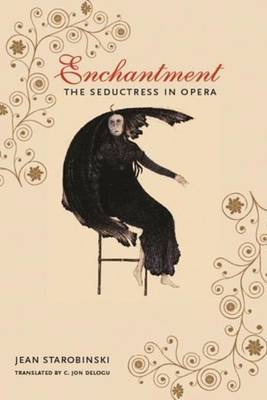
- Afhalen na 1 uur in een winkel met voorraad
- Gratis thuislevering in België vanaf € 30
- Ruim aanbod met 7 miljoen producten
- Afhalen na 1 uur in een winkel met voorraad
- Gratis thuislevering in België vanaf € 30
- Ruim aanbod met 7 miljoen producten
Zoeken
Omschrijving
We often look to the theater for spectacle and wonder, but in opera, we find pure enchantment. What is it about the marriage of music and the stage that fills us with such bewilderment and passion? How does the sensual space of opera transport us into the realm of dream?
Jean Starobinski considers the allure of several seducers and seductresses from nineteenth-century opera-Monteverdi's Poppea, Handel's Alcina, and Massenet's Manon, among others-and how their stories are woven into the fabric of Western culture. A talented storyteller and renowned critic of literature and music, Starobinski moves from musical analysis and textual exegesis to an investigation of the political, social, and aesthetic scene of Europe at the time. He traces the elements of theater, poetry, painting, sculpture, dance, and music as they occur in operatic performance, and shows how opera's use of narrative genres, especially the fairy tale, in turn influenced many important short stories, novels, and other works. Nineteenth-century romantics were drawn to opera because of their desire to revive a religious vision of the world that the Enlightenment suppressed. Starobinski revisits the experiences of Rousseau, Stendhal, Hoffmann, Balzac, and Nietzsche, major writers who fell for opera's portrayal of "heaven," the loss of one's love, and the task of the artist, whether composer or performer. Starobinski's critical breadth and depth, as well as his eclectic taste and keen observation, echo such great comparative critics as Erich Auerbach, René Wellek, George Steiner, Harold Bloom, and Angus Fletcher. This spellbinding book will enchant not only fans of the opera, but also those who wish to understand the form's enduring heritage in Western culture.Specificaties
Betrokkenen
- Auteur(s):
- Vertaler(s):
- Uitgeverij:
Inhoud
- Aantal bladzijden:
- 288
- Taal:
- Engels
- Reeks:
Eigenschappen
- Productcode (EAN):
- 9780231140904
- Verschijningsdatum:
- 14/04/2008
- Uitvoering:
- Hardcover
- Formaat:
- Genaaid
- Afmetingen:
- 163 mm x 235 mm
- Gewicht:
- 544 g

Alleen bij Standaard Boekhandel
+ 186 punten op je klantenkaart van Standaard Boekhandel
Beoordelingen
We publiceren alleen reviews die voldoen aan de voorwaarden voor reviews. Bekijk onze voorwaarden voor reviews.








